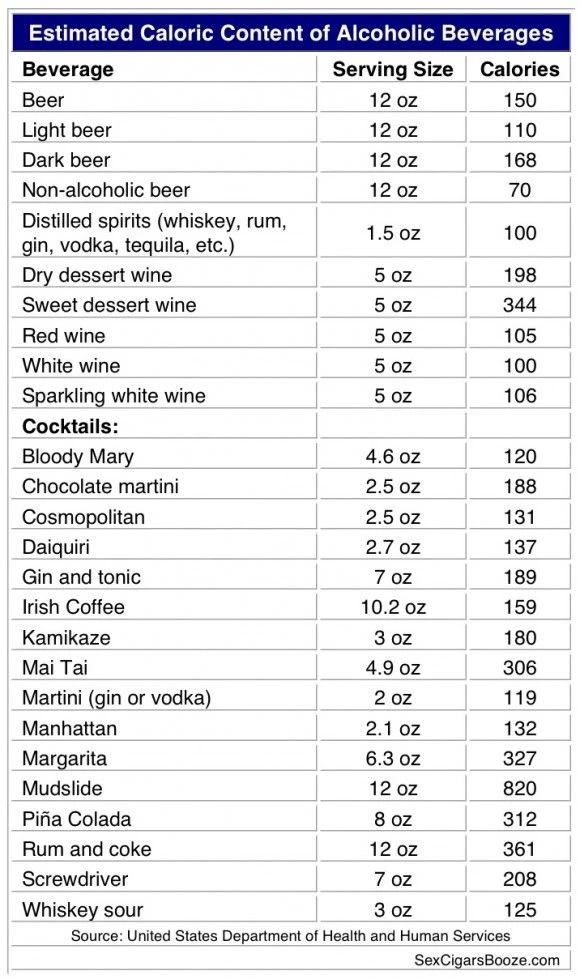A lot of us enjoy a drink here an there. Alcohol has become an integral part of modern day society both for the good and for the worse. But how does alcohol effect your progress in the gym? How does it effect weight loss, strength gain & performance?
This short blog will briefly explain the effects of alcohol on these subjects.
First of all, lets talk about weight loss. Weight loss is arguably the most common goal among gym goers. As we already know (if you have read my previous blogs or follow any credible nutritionists) weight loss (fat loss) is achieved by adhering to an energy deficit. Of course there are many variables that can effect your adherence to an energy deficit such as nutrient density, sleep, activity etc – but as long as an energy deficit is achieved you shall lose body fat.
Alcohol itself is a caloric substance (7 calories per gram). However, it has very little nutrient density – hence the term “empty calories”. This clearly means that intaking alcohol will mean you are also intaking more calories – not ideal if you are an individual with a small calorie requirement (due to dieting). You also have to consider the other ingredients going into your drinks. Below is a table showing various showing their serving size and caloric amount.

Alcohol also lowers your inhibitions. How many times have you gone out on a binge drinking session and stopped off at the kebab house on the way home? Yes, a few times at least I imagine. If you are and individual on a restricted calorie diet and you load up on alcohol and junk food the chances are you will not achieve your fat loss goals.
So we have concluded that alcohol consumption can negatively effect weight loss due to extra caloric intake when it is consumed (especially in high volumes). Now lets talk about performance.
Alcohol has been shown to inhibit testosterone production by having a inhibitory effect on the Leydig cells that are responsible for testosterone production. Testosterone is the hormone mainly responsible for the retention of nitrogen and promotion of muscle growth. Continued alcohol consumption will inhibit the leydig cells chronically – thus reduce testosterone production, thus reduce muscle synthesis. This of course will effect performance negatively, especially is alcohol is consumed within one hour of a training bout.
Consuming large amounts of alcohol can also (and usually does) result in a hangover. If you are individual with a low tolerance to alcohol and are effected very badly by hangovers then the chances are you won’t want to train. The reduction of training volume and intensity will also affect your progress.
In conclusion – alcohol is not the best for optimising training and nutrition for performance and/or fat loss. There are of course other health concerns for drinking alcohol that I have not mentioned such as alcohol dependence, liver and kidney issues and more.
However, health & fitness is meant to be fun and by restricting everything we enjoy just because it is not “optimal” will leave us very demoralised and unmotivated to train and adhere to our nutrition. So, here are a few pointers to help with planning your alcohol consumption.
- If you have an evening planned where lots of alcohol will be consumed then plan your calories accordingly. Eat less that day or on the previous day to ensure your weekly calorie intake doesn’t go over your requirement. This will help with your weekly calorie average remaining in the deficit.
- Do not do a heavy training session before your consume a large quantity of alcohol. You simply will not recovery very well from the session & will not reap the rewards from it either.
- Choose lower calorie drinks such as spirits and diet mixers to keep the calorie intake as low as possible.
- Try not to drink during the week, but if you do, try and keep your intake to 2-3 units.
- Have a pre made snack made at home which you can eat once return from a heavy drinking session. This way you can control what calories you consume and not be tempted to eat high calorie junk food!
I hope this blog helps, if you have any questions about this subject or any other health and fitness subject then please get in touch!
Stay Strong,




